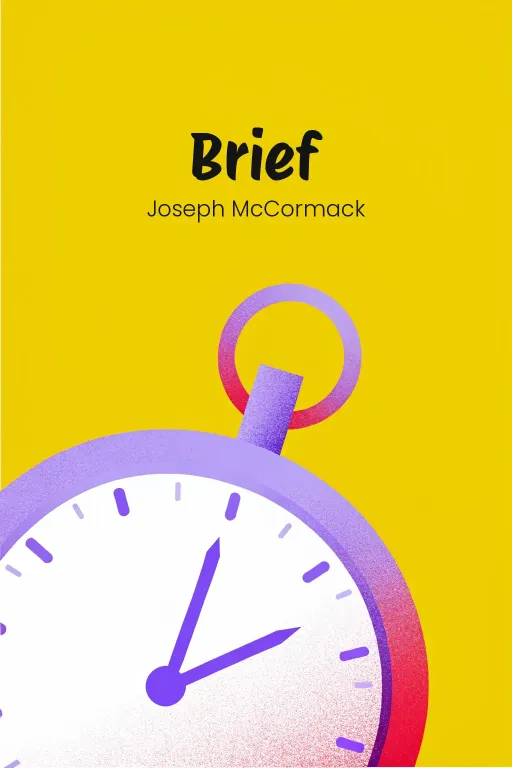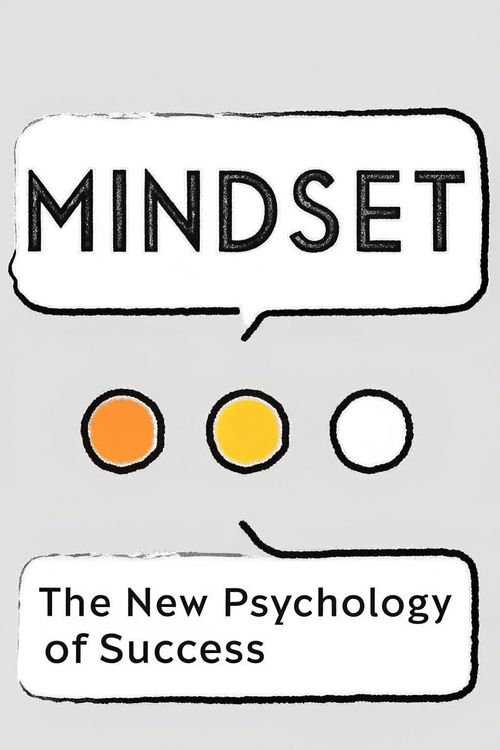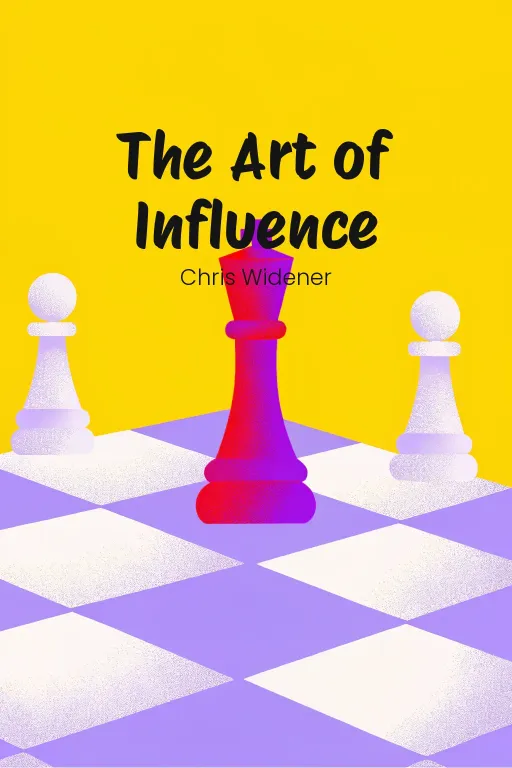
Inner Home: Build Your Emotional Sanctuary
Podcast by Beta You with Alex and Michelle
Zip Through Books, Magazines, and Newspapers – Understand and Remember Everything You Read
Inner Home: Build Your Emotional Sanctuary
Part 1
Alex: Hey everyone, welcome back to the podcast! Today, I want you to do a little thought experiment with me. Imagine your sense of self, your inner being, as a home. Think about the foundation, the walls, the rooms inside... Is it a place of comfort, your sanctuary? Or are the walls crumbling, maybe because you've been too focused on building things for everyone else? Michelle: Yeah, what’s life without a little structural damage, right? A leaky roof, a door hanging off its hinges... Sounds like the kind of home improvement project I’d botch completely. But seriously, Alex, this “perfect house” idea, what’s the real gist of it? Alex: Well, it comes from Najwa Zebian's book, Welcome Home. She talks about creating an “inner sanctuary,” a place of self-love, healing, and really being yourself. She shares her own journey of healing old wounds, learning to ignore what others think, and ultimately, living a life where you feel complete and strong. Michelle: Okay, so we're talking about emotional architecture, designing our inner space. But where do we even begin? How do we pick up the hammer, so to speak? Alex: That’s exactly what we're getting into today. We're going to walk through three key steps to building that inner home. First up, laying the foundation – and that's all about self-acceptance. Think of it this way: just like a solid foundation supports a house, self-acceptance is the bedrock for everything else. Michelle: Makes sense. A shaky foundation, and the whole thing's going to fall apart, eventually. So, what's the next phase of construction? Alex: Next, we build the walls. This is about self-love and creating boundaries – the protection you need to keep your inner peace safe and sound. Michelle: Right, so keeping out the emotional squatters. Got it. And finally? Alex: The windows! That is all about forgiveness and compassion, which bring light and freedom to your home. Each of these steps is a building block on your journey to feeling whole. Michelle: Sounds like a major reno project, but I'm definitely interested. Alright, let’s get into the details and see where the potential trouble spots are, and you know, maybe where we can do a little remodeling.
Building a Foundation of Self-Acceptance and Self-Awareness
Part 2
Alex: So, let’s dive in with self-acceptance and self-awareness. I see it as the foundation of our inner world. You know, like the concrete slab a house sits on. Without it, anything else you try to build—boundaries, relationships, goals—well, it's shaky and could easily crumble. Michelle: Okay, but how does someone even start building that foundation? I mean, it's easy to say, "Accept yourself," but what if you've spent years feeling inadequate? How do you overcome that? Alex: That's a great question. Zebian suggests it begins with identifying the narratives we tell ourselves about our own worth. What beliefs about your value have been shaped by societal expectations or past experiences? She uses reflective questions to help people identify those stories. Michelle: Alright, then, give me one of these so-called life-changing questions. Alex: Okay, here's one: "What are the earliest memories you have of feeling unworthy?" The point isn't to blame the past, but to spot patterns. If you've always believed you're only valuable when you achieve something—like good grades or promotions—you're basically outsourcing your self-worth. Michelle: So, it’s like lugging around old baggage without realizing it’s slowing you down. But what if you’re completely lost? What if you face these narratives and think, "I don't even know who I am anymore"? Alex: Zebian recommends journaling as a way to reconnect with your authentic self. She suggests writing prompts like, "Who am I when I’m not trying to impress or please others?" It's a deceivingly simple way to get down to what feels genuinely real for you. Michelle: Journaling could work, I suppose, assuming you can bear reading your own emotional outpourings afterward. Alex: You laugh, but Zebian discovered something profound through journaling in her own life. After a major breakup, she realized she kept thinking: "Why are people always okay with leaving me?" Just writing it down brought that fear to light—a fear she didn't even fully know she had—and that was the first step in rewriting her story of self-worth. Michelle: I see. So, by journaling, you’re letting all the hidden stuff rise to the surface, like clearing a blocked drain? Alex: Exactly. And when you see what's clogging the system, you can address it, heal, and move on. She also talks about mindfulness. It's about observing your thoughts without getting attached to them—like watching clouds pass by instead of believing every single thought defines you. Michelle: Right, so when my brain screams "You're not good enough" or "Why haven’t you achieved more yet?", I don’t automatically treat it as breaking news? Alex: Precisely. Zebian argues that self-awareness allows you to recognize those voices for what they are—conditioned beliefs, not truths. Michelle: Okay, but how does this foundation hold up when you’re constantly dealing with people who undermine it? For example, what if you're in a toxic relationship where your partner always makes you second-guess yourself? Alex: Well, that's where self-awareness becomes a kind of armor. Zebian tells the story of Sena, who was in a gaslighting relationship. Her partner made her question her reality, her memories, her feelings—everything. But once Sena recognized the manipulation for what it was, it gave her the clarity to distance herself emotionally and leave. Michelle: So, awareness isn’t only about knowing yourself—it’s also about knowing when others are treating you badly. Alex: Exactly. It's a tool for taking back control. And that brings us to the importance of letting go of societal standards. Zebian talks about how we often link our self-worth to things like approval from others, job titles, or even appearances. Michelle: Which means we’re building houses out of straw – flimsy and easily knocked down by a single negative comment or rejection. Alex: Exactly! Zebian realized how much she tied her value to external validation. She found herself subconsciously begging for others to see her worth. Her breakthrough came when she asked herself, "Why am I worthy, “even without” their validation?" Michelle: And what’s the answer? Alex: That she’s enough—simply because she exists. That's the ultimate act of self-acceptance: knowing that your value isn't something you earn; it just is. Michelle: I admit, that's both inspiring and difficult to accept. If we've spent years connecting our worth to achievements or external validation, breaking that habit must be like unlearning a language you've spoken your whole life. Alex: It takes time and conscious effort, definitely. That’s why affirmations can be so helpful. Zebian suggests using phrases like, "I am enough exactly as I am," or "My worth doesn’t depend on other people’s validation." Hearing these truths repeatedly can rewire your brain over time. Michelle: Okay, but affirmations aren't a magic bullet, are they? What if you've just experienced rejection or failure, and the negative voice in your head is louder than the affirmation? Alex: That's when you combine affirmations with reflective practices like journaling or mindfulness. Instead of suppressing the negative feelings, you acknowledge them, process them, and then remind yourself of your inherent worth. Think of the tools Zebian offers as bricks: each one strengthens your foundation little by little. Michelle: So, it’s not about fixing everything all at once—it’s about making small, consistent efforts to rebuild over time. Alex: Exactly. And once the foundation of self-acceptance and self-awareness is solid, it supports everything else in your inner world.
Cultivating Self-Love and Boundaries
Part 3
Alex: So, after we’ve got that solid foundation, the next thing is “really” nurturing self-love and setting boundaries to protect our emotional well-being. It’s all about building on that self-awareness, and taking practical steps to truly care for ourselves and create those protective barriers, you know, that preserve our inner peace. Michelle: Okay, so if self-acceptance was pouring the foundation, now we’re talking about building the actual walls of this emotional home, right? So, what’s the blueprint for self-love, then? Alex: Well, self-love gets a bad rep sometimes, doesn't it? People think it’s just about indulgence or those superficial things, like spa days. But, “really”, it’s an ongoing thing. It’s about respecting and nurturing yourself at a “really” core level. And that starts with self-empathy – treating ourselves with the same kindness we’d show a dear friend. Michelle: Right, so self-love isn't just lighting a candle and chanting affirmations in the mirror. Got it. But, honestly, why is self-empathy so hard? Most people I know are way better at beating themselves up than at giving themselves a break. Alex: Exactly! That’s the point, isn’t it? Think about how we react when we mess up or face a disappointment. Instead of offering ourselves understanding or reassurance, the way we would to a friend, we often just default to criticism. We say things like, “Why can’t you just get your act together?” Michelle: Guilty as charged. And I’m guessing that’s when the metaphorical wrecking ball swings in and smashes those walls we’re trying to build. Alex: Precisely. Zebian suggests we flip that script, speak to our inner critic the way we would to someone we genuinely care about. So, when you’re overwhelmed and feeling like you’re failing, instead of saying, “Why can’t I handle this?” you might say, “This is “really” tough right now, and it’s okay to feel this way.” Michelle: So, less drill sergeant barking orders, more like your inner life coach, you know, encouraging you through the hard times instead of just piling on the pressure. Alex: Exactly! Zebian even uses a beautiful analogy for this. She talks about self-empathy as opening a door to yourself, inviting all the parts of you in – even the messy, hurting parts. If you don’t extend that invitation, those neglected parts just hang around outside, making noise and demanding attention. Michelle: Interesting. So you’re saying ignoring those voices is a recipe for disaster. But isn’t there a risk of being too forgiving with yourself? What if you just keep saying, “It’s okay,” and never actually make any changes? Alex: That’s a “really” insightful point, and Zebian addresses it directly. She emphasizes that self-empathy isn’t about absolving yourself of responsibility. It’s about creating the emotional breathing room to recognize what needs to change without getting paralyzed by guilt or shame. When you do that, you’re far more likely to take constructive action. Michelle: Makes sense. It's kind of hard to fix a crack in the wall if you're standing there yelling at yourself for letting it form in the first place. Alex: Exactly. And self-love doesn’t exist in isolation, it’s deeply connected to boundaries. Think of boundaries as the structural supports for your walls, the steel beams, if you will. Michelle: Ah, here comes the fun part where we start saying “no” to people. Alex: More like saying “yes” to yourself! Boundaries aren’t about shutting others out. They’re about defining what’s acceptable behavior in your relationships and being clear about your limits. Michelle: Got it. So, boundaries are less about building a moat around the castle and more about, you know, marking your property line with a clear sign. What’s a good example of that? Alex: Zebian shares a story about a relative making a negative comment about her appearance at a family gathering – something many of us can relate to, right? Instead of internalizing it or staying silent, she responded calmly but assertively, “Yes, I am happy with myself.” Michelle: That's a bold move. But doesn’t setting boundaries like that risk blowing up the whole relationship dynamic? Alex: Not necessarily. Boundaries, when communicated with love and clarity, can actually strengthen relationships. Zebian’s response wasn’t intended to attack her relative, it simply set a standard for how she expected to be treated. The trick is to convey your boundary without resorting to blame or hostility. Michelle: Easier said than done, though, especially when emotions are running high. What’s the trick to keeping things calm? Alex: One method Zebian talks about is using "I" statements. This keeps the focus on your feelings rather than pointing fingers. Like, for example, “I feel disrespected when my contributions are dismissed. I’d appreciate it if we could be more intentional about hearing each other out.” Michelle: Right, and it also lowers the chances of escalating it into a full-blown argument, I imagine. Alex: Exactly. It shifts the conversation towards mutual respect, rather than confrontation. And it’s not just about those big, dramatic moments. Boundaries can be subtle acts of self-respect in our daily lives, too. Michelle: Like what, give me an example? Alex: Imagine a coworker who’s constantly dumping their tasks on you. A simple boundary could be saying, “I don’t have the capacity to take that on right now.” It’s direct, it’s clear, without being rude. Michelle: Okay, I see how that sets the tone. But what happens when people – especially family – push back on your boundaries? Alex: Zebian addresses that as well. Boundary-setting is a learning curve for everyone. It’s natural for some people to resist at first. But the more consistently you enforce them, the more others begin to adapt. And even if they don’t, you’re protecting your emotional well-being, which is the ultimate priority. Michelle: So, essentially, boundaries are about knowing your worth and standing by it, regardless of how others react. Alex: Exactly. And the ripple effect is pretty profound. It reshapes not only your interactions with others but also your relationship with yourself. You’re reinforcing, through action, that your emotional safety matters, you know? Michelle: This is starting to feel less warm and fuzzy, and more like practical self-preservation. I like that. Alex: That’s the beauty of it! Self-love and boundaries aren’t about chasing perfection or, you know, putting on a show for others. They’re about celebrating your inherent worth and creating a safe, nurturing inner world where you can thrive.
Embracing Forgiveness, Compassion, and Emotional Liberation
Part 4
Alex: Strengthening self-love involves forgiveness and compassion, which are essential for emotional freedom. Integrating these into your healing journey unlocks the ability to release emotional baggage and connect more deeply with yourself and others. Michelle: So, this is all about making peace with past hurts, the ultimate cleanup crew for emotional debris, right? Alex: Exactly! Najwa Zebian really gets into this in Welcome Home. Forgiveness and compassion aren't about erasing the past, but about transforming it. Think of forgiveness as cutting the chains that tie you to your pain, and compassion as nurturing that helps you and others heal. Michelle: Sounds good, but let's get real. How does forgiveness actually work? What's the first step in letting go of emotional burdens? Is it simply deciding to let go, or is there more to it? Alex: It's definitely more than just deciding. Zebian describes forgiveness as a very intentional process. It's not about excusing harm—some wounds are too deep to forget—but about regaining your emotional freedom. Michelle: Sounds liberating, but almost impossible. Can you give me an example of how someone does that? Alex: Zebian shares a powerful visualization. She describes forgiveness as entering a "Forgiveness Room" to confront your grievances. Picture them as chains connecting you to a painful memory or person. Each act of forgiveness is like cutting a link, gradually freeing you. Michelle: Okay, so imagine I visualize a chain and start snipping. What happens when the resentment comes back? It seems like forgiveness needs to be more permanent. Alex: That's where awareness comes in. Zebian suggests acknowledging the pain, not fighting it. By confronting those emotions, you loosen their grip. Instead of replaying the actions of the person who hurt you, ask, "How has holding onto this pain controlled my life?" Shift the focus to how you can reclaim that energy. Michelle: Interesting. It's less about letting them off the hook and more about taking back your power. Alex: Exactly. Forgiveness is fundamentally about you, not them. Ask yourself, "What pain keeps resurfacing?" or "What do I gain by releasing blame?" This shift in perspective makes forgiveness a personal liberation. Michelle: Alright, now what about forgiving yourself? I'd say that's harder than forgiving someone else. Alex: Absolutely, and Zebian talks about this a lot. Self-forgiveness starts by acknowledging guilt or regret. Maybe you trusted the wrong person, or didn't set enough boundaries. Instead of beating yourself up, reframe the story: "I did the best I could with what I knew then." Michelle: So, mistakes are lessons, not life sentences. Easier said than done when you hold onto shame. Alex: Exactly, but it's key to growth. Self-forgiveness removes that shame from your internal dialogue and replaces it with compassion. Zebian talks about forgiving herself for seeking validation from the wrong people. It wasn't her fault they didn't respect her, but she could respect herself moving forward. Michelle: Proactive, I like that. So, forgiveness cuts the chains, but compassion stops you from putting them back on. Alex: Exactly! Compassion is a key companion to forgiveness. It's about understanding yourself—and others—rather than judging. It's challenging, especially if you're self-critical. Michelle: Compassion sounds gentler, but how do you practice it when someone's actions were awful? Surely there's a line between compassion and letting someone get away with something? Alex: Good question. Compassion doesn't mean condoning harm. Zebian suggests considering the context—what drove their actions—without diminishing its impact on you. Compassion allows understanding without excusing. Michelle: Alright, but how do you show compassion to yourself? It sounds great, but we usually default to our inner critic. Alex: Zebian tackles this directly. Start with small acts of self-kindness. If you're struggling, and your impulse is to think, "Why am I so bad at this?" respond with, "This is a hard moment, and it's okay to feel overwhelmed." Flip the script from blame to care. Michelle: So, less of a drill sergeant yelling at you and more of a supportive coach. Alex: Exactly. Zebian describes self-compassion as opening a door to yourself. It's saying, "Every part of me is welcome," even the messy parts. When you embrace them, healing becomes possible. Michelle: Sounds brave, letting the skeletons out of the closet. But why be so vulnerable? Doesn't it make us feel exposed? Alex: Vulnerability can feel exposing, but Zebian says that’s where the deepest healing happens. When you acknowledge your struggles, it opens you up to more authentic relationships—with yourself included. Michelle: Okay, but again, what about practical steps? How do you bring compassion into a spiraling moment? Alex: Zebian offers a technique: pause and ask, "What do I need right now?" Naming your need—rest, comfort, validation—creates an anchor of self-compassion. Michelle: And that rewires how we react to stress over time? Alex: Exactly. It's not an overnight fix, but with practice, self-compassion becomes your first instinct, not self-criticism. This extends outward, helping you cultivate patience for others. Michelle: So, forgiveness cuts the emotional baggage loose, and compassion helps us tread lighter. It's an emotional renovation project—hard but life-changing when done right. Alex: Precisely. When we integrate forgiveness and compassion, they pave the way for emotional liberation. We release pain without losing the lessons, and we move forward with freedom.
Conclusion
Part 5
Alex: So, to wrap up, Najwa Zebian's “Welcome Home” is really about creating that inner sanctuary, right? Where self-acceptance, self-love, and self-compassion are basically the foundation, the walls, the light—everything you need in your emotional home. We talked about how self-awareness helps you spot the cracks, how boundaries protect your peace, and how forgiveness and compassion help you, well, reclaim your emotional freedom. Michelle: Right, it sounds great, Alex, but is this all just theory? I mean, building a home sounds nice, but how do we actually do this? Alex: Well, Zebian isn't just throwing ideas out there, she gives you the tools— things like journaling, mindfulness, affirmations, setting boundaries. Small, actionable things you can do to rebuild, one step at a time. It's not always easy. Michelle: Okay, that makes sense. So here’s the big question: Is your emotional home a fixer-upper, or is it move-in ready? Are you ready to renovate, tear down some walls, and make it your own again? Alex: Exactly! I think the call to action here is pretty simple, but powerful. Start building with intention. Even just laying one brick at a time makes a difference, you know? Michelle: So, no more ignoring the water damage, then? We actually have to get in there and fix the plumbing? Alex: Exactly! Don’t be afraid to really inspect those blueprints. Some parts might need to come down so you can create something better, right? Like Zebian says, healing is construction. It's not instant, but it's always worth it. Michelle: I like that. Healing is construction, not a miracle. So, where should people start? Alex: Well, people want simple ways to apply it to their daily life. Start by recognizing that it's a journey, with both good days and setbacks. Treat yourself the way you are treating your family member, with love and support. Michelle: Seems like a solid foundation. Alex: Thanks for joining us as we dove headfirst into building your inner home. Until next time, remember, you’re the architect of your own sanctuary. Keep building!









